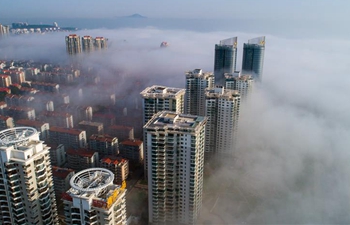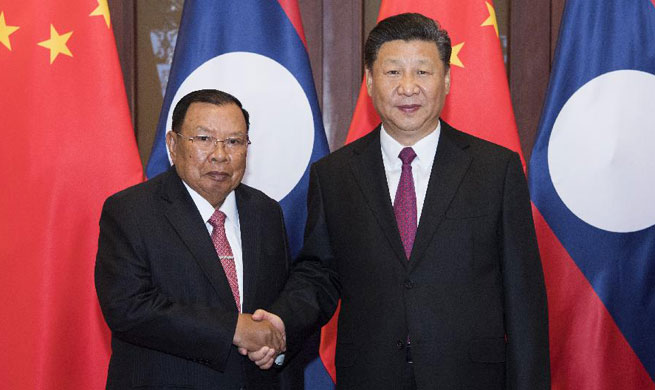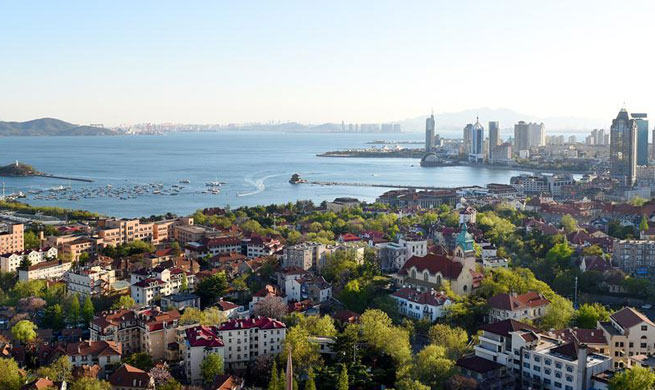RIO DE JANEIRO, May 30 (Xinhua) -- Brazil's state-run oil giant Petrobras will "maintain" an unpopular fuel pricing policy despite a prolonged nationwide protest by truckers, the government said on Wednesday.
As the truckers' strike entered its 10th day, the office of the presidency signalled it would not back down from liberalizing fuel prices, which are now determined by international market rates on a day-to-day basis.
"The government of President Michel Temer is committed to the financial health of Petrobras, a company that has been rescued from serious crisis in the past two years under the direction of Pedro Parente," Temer's office said in a statement, referring to the firm's CEO.
"We will continue to maintain Petrobras' pricing policy," the government said.
In mid-2016, Parente took over the management of the troubled oil company, after top executives were arrested or fired for running bribery and kickback schemes.
The company had long capped the price of fuel as a way to control inflation, despite sustaining millions in losses, but in July management announced it would allow prices to fluctuate in keeping with the dollar exchange rate and market demand.
With the recent rise in global crude prices, Brazil's gasoline and diesel prices shot up, leading truckers to block highways in demand of lower prices and tax breaks.
The government offered truckers some concessions on Sunday night but many felt the measures don't go far enough to address their concerns, and have continued to block highways and roads.
In a teleconference call Tuesday night, Parente assured foreign investors he had no intention of changing the policy.
However, Temer's troubles grew on Wednesday, after oil workers launched a 72-hour strike against the pricing policy and Parente's management.
Organized by Brazil's largest oil workers' union, the FUP, the strike affects refineries, terminals and oil platforms in the states of Sao Paulo, Minas Gerais, Parana, Rio Grande do Sul, Amazonas and Pernambuco.
According to the FUP, the oil workers' strike won't impact fuel supplies because the truckers' strike has left full tanker trucks sitting idly at refineries.
"Our strike aims to defend Brazil, so Brazilians pay a fair price for cooking gas and fuels," the FUP's coordinator general, Jose Maria Rangel, said in a statement.
Brazil's top labor dispute court (TST) called the oil workers' strike "abusive," and said unions will be fined the equivalent of 135,000 U.S. dollars a day for the work stoppage.

















